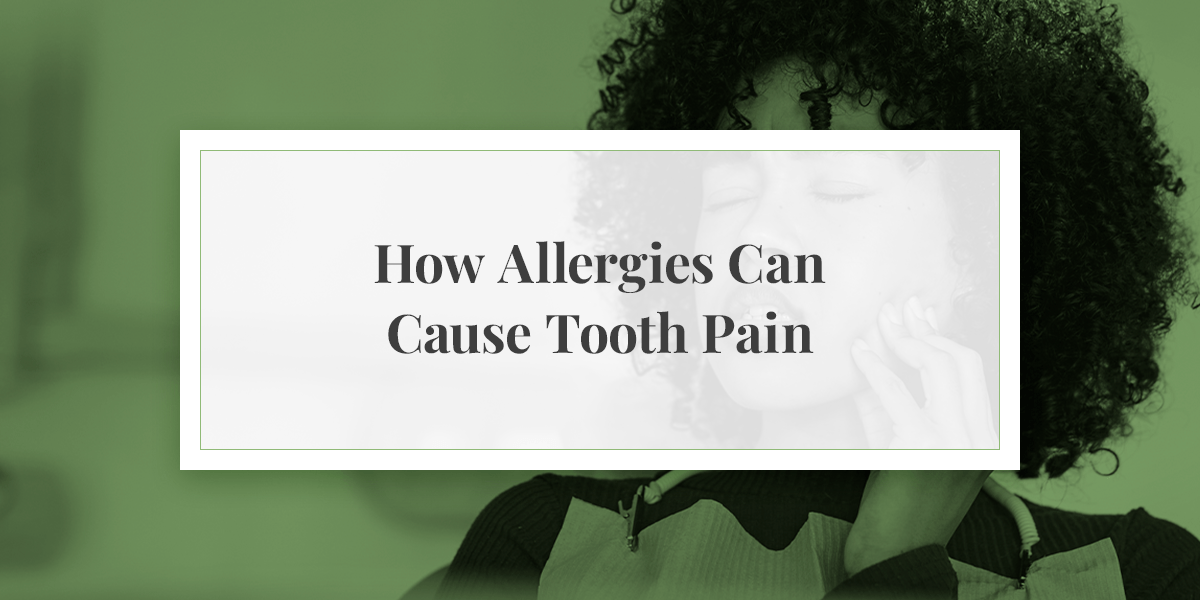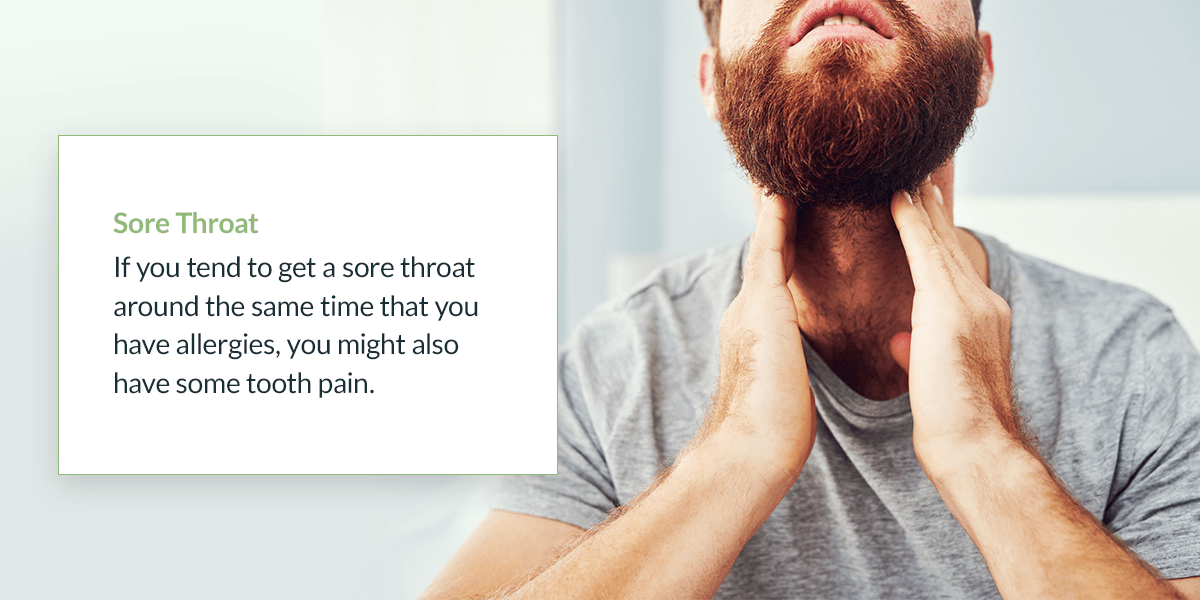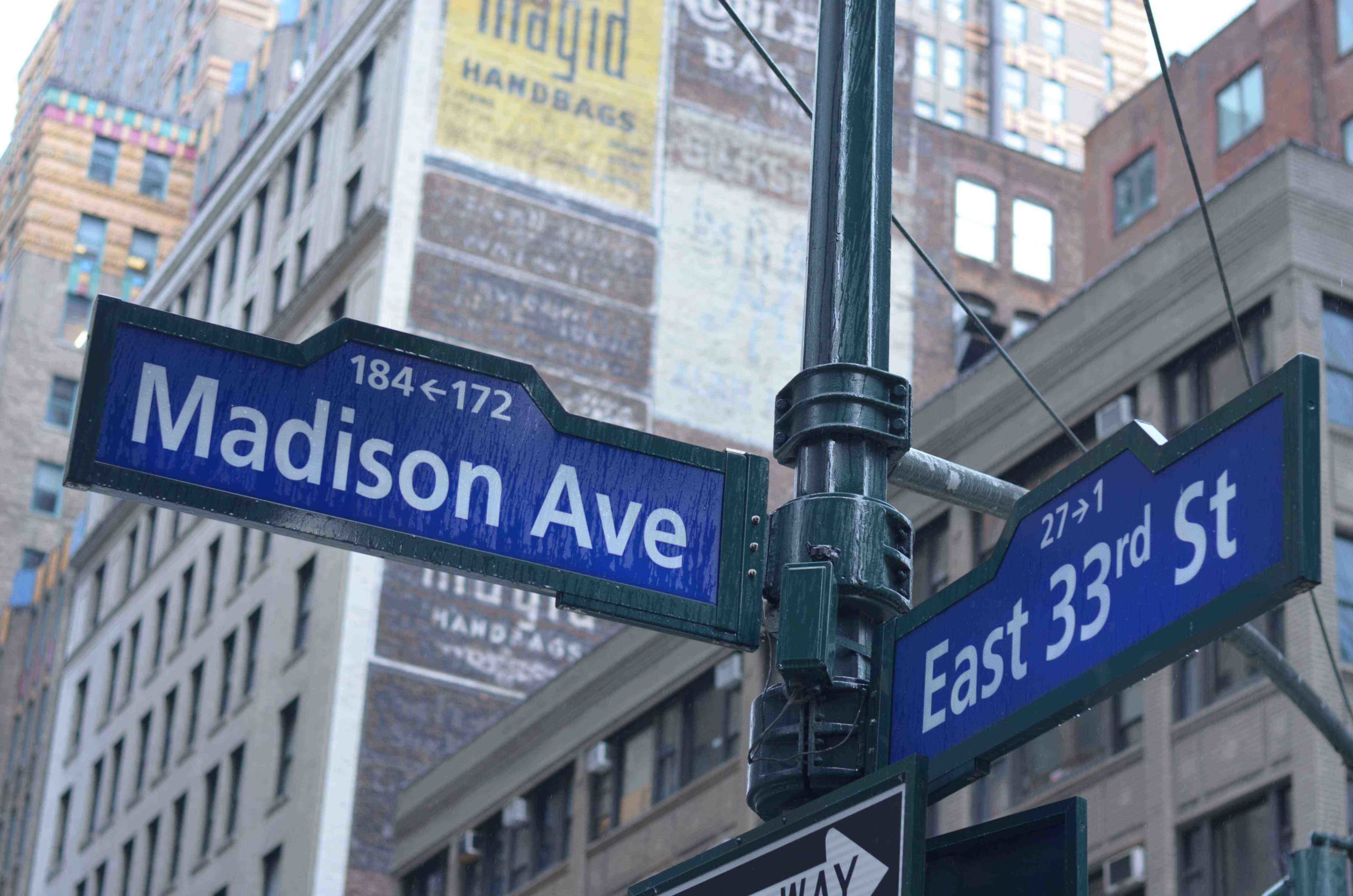
It may be common to have tooth pain with your allergies. When your body responds aggressively to an allergen such as dust or pet dander, mucus coats your nasal passageways to protect you. The sinus pressure from an excess of mucus can cause an aching feeling in your head, face and teeth.
Some patients will have sinus pressure in the root tips of the teeth, and if you have ever experienced this, it can feel similar to a tooth infection. If you are suffering from allergy symptoms and want to know if your tooth pain might be related, the best way you can find an answer is by talking to a doctor and getting allergy testing. You can find more information about tooth pain caused by allergies below.
Ways That Allergies Can Cause Tooth Pain
Allergies and oral health can be interlinked, and it is important to know what signs to look out for. Below are some examples of how allergies can affect teeth and dental health overall:
1. Sinus Pain
If you have a lot of sinus pain along with allergy symptoms, your allergies might be what causes your sinus pressure, a very common symptom of seasonal allergies. Sometimes, sinus pain can feel like it is radiating from your teeth. Your maxillary sinuses are located near the upper molars, so it can feel like your molars are hurting when sinus pressure affects this sensitive area.
It can be difficult to distinguish between pain in your sinuses or teeth. You might be able to determine what kind of pain you have if you keep track of what else hurts. If you feel achy in your forehead, nose and teeth, you probably have sinus drainage. If you also have a stuffy nose, then your seasonal allergies are a likely culprit.
2. Dry Mouth
If you get allergies at certain times of the year, your mouth could dry out. If you are allergic to pollen and struggle through hay fever every year, you probably notice that your mouth feels drier than usual.
Having a dry mouth for a long period of time can make you more vulnerable to tooth decay. This is because your saliva helps clear out bacteria and protects your teeth. If you have allergy symptoms all year long, you might have an increased risk of tooth decay or infection. It can be challenging to diagnose tooth pain caused by dry mouth, so if you are having both symptoms, it is important to visit your dentist.
3. Sore Throat
Nasal discharge running down into your throat because of your allergic reaction can result in a sore throat. If you tend to get a sore throat around the same time that you have allergies, you might also have some tooth pain. The postnasal drip from your aggravated sinuses is what leads to the aching feeling in your teeth. A sore throat can also make your lymph nodes feel swollen.
If you have a persistent sore throat with other symptoms, talk to your dentist as a sore throat could also be a symptom of a tooth infection. For a persistent sore throat, see your primary doctor to rule out or diagnose a bacterial infection or virus.

4. Bad Breath
All of the excess mucus that your allergies trigger results in nasal discharge and postnasal drip. The mucus allows bacteria to multiply rapidly in your mouth, giving you bad breath.
If you start to get bad breath because of allergies, the problem will worsen over time if your allergy problems continue or become chronic. When you breathe through your mouth because your nose is stopped up, your mouth will dry out more and you will continue to have bad breath.
5. Swollen Gums
Allergies can also make your gums hurt. The gum swelling that you experience during allergy season could be painful because of an inflammatory response in your body. Your postnasal drip and dry mouth can lead to gum swelling and sensitivity. Swollen gums have other potential causes, such as rough brushing habits and infection.
If you avoid brushing because your swollen gums are sore, you can develop gingivitis or gum disease. Try to keep brushing around your gumline even if your gums are tender and swollen from allergies.
What to Do If You Get Tooth Pain With Allergies
You should keep track of your symptoms to see if they worsen over time. It is possible to have allergies and a tooth infection or cavity at the same time, but allergy symptoms can lead to tooth pain that will go away when allergy season is over. If you have any tooth pain, you should see your dentist and discuss your specific symptoms.
How to Know If Your Tooth Pain Is Allergy-Related
You might wonder if your tooth pain is related to allergies or a serious tooth infection. With the right dentist, you can get the problem diagnosed and treated. If you end up having a tooth infection, a dentist will use the best treatment method for your case and prescribe medications for you to get better quickly.
If your dentist determines that allergies are the most likely cause, you can take over-the-counter medications for congestion and see if it helps the problem.
Home Treatments
After you see your dentist for care, you can treat your symptoms at home with allergy remedies. First, get your nasal congestion and sinus pressure under control, which should help with your aches and pains. Focus on eliminating your congestion with the following over-the-counter medications:
- Antihistamine: This type of medication reduces the body’s inflammatory response, which is responsible for allergic reactions.
- Nasal spray: A topical medication to reduce mucus and sinus drainage, nasal sprays can help alleviate allergy symptoms.
- Decongestant: If treating a lot of mucus, this type of medication can help relieve nasal congestion.
Before you take any over-the-counter medication, check with your doctor to ensure they are safe and do not interact with any medication you already take. If you continue to have a toothache, revisit the dentist for a reevaluation and let them know that your symptoms have persisted.
When to See Your Dentist
If your toothache worsens or if you feel a sharp, throbbing pain, you should see your dentist right away. You might have a tooth infection instead of allergy-related pain if:
- You rarely have allergy symptoms.
- It is painful to chew food.
- Hot or cold beverages and food trigger the pain in your tooth.
- The pain in your teeth lasts for weeks or longer.
- You feel a lump on your gumline.
Call to Schedule a Consultation With 209 NYC Dental
If you have more questions about how allergies and dental health are related, or if you wish to schedule an appointment, contact 209 NYC Dental online today.









